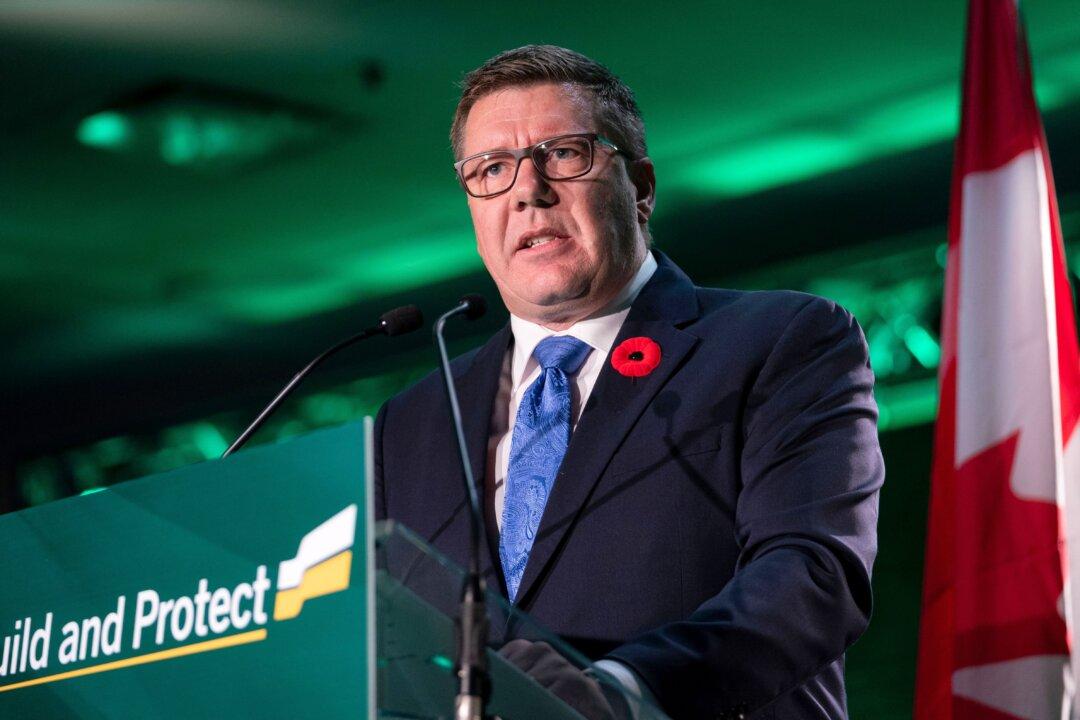Out of the five conservative leaders featured on the 2018 Maclean’s magazine cover headlined “The resistance,” only two are still in their leadership roles: Saskatchewan Premier Scott Moe and Ontario Premier Doug Ford.
ANALYSIS: ‘Next Level’: Moe an Increasingly Strong Voice on the National Political Stage
The Saskatchewan premier’s resistance to Ottawa goes beyond the federal carbon tax to provincial rights, gun control, and parental rights.

Saskatchewan Premier Scott Moe speaks during the Saskatchewan Party Convention in Regina on Nov. 4, 2023. The Canadian Press/Heywood Yu




